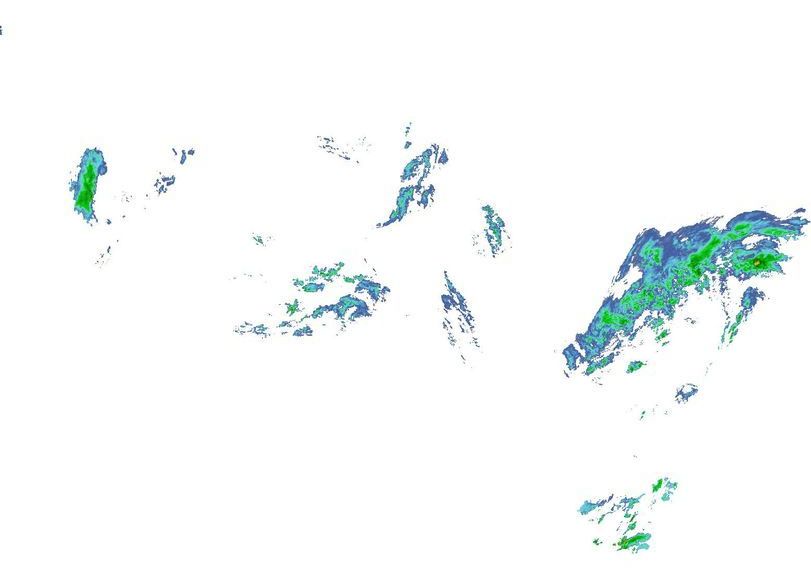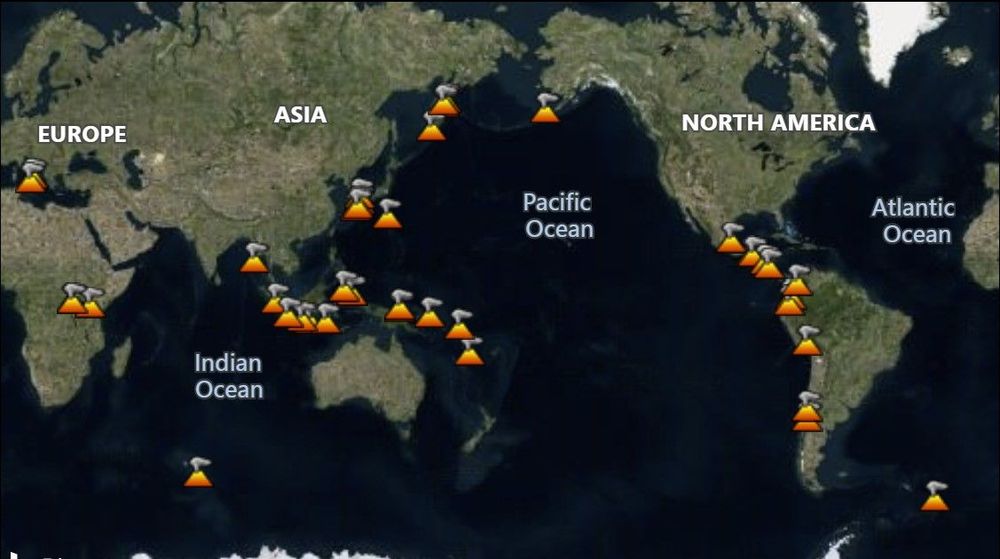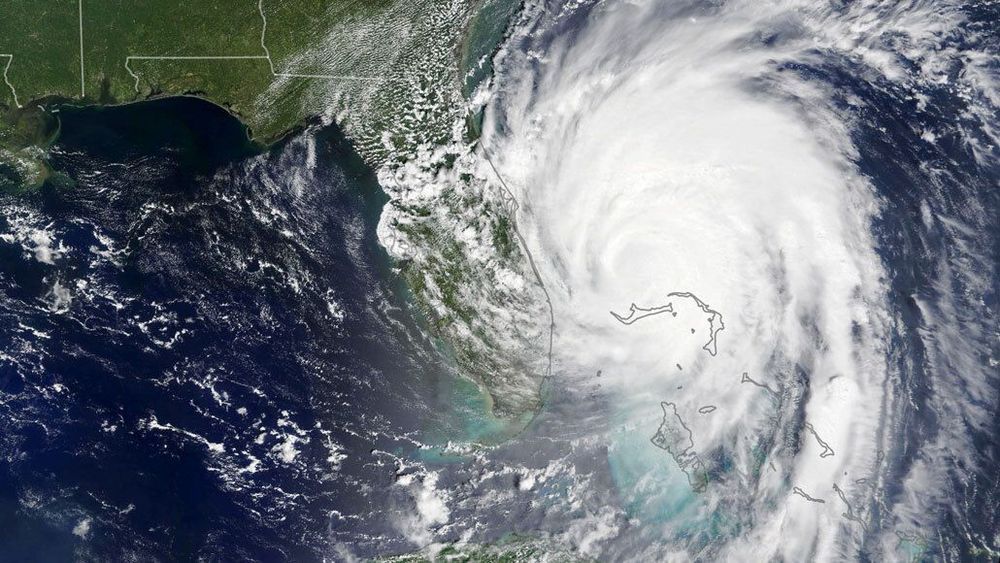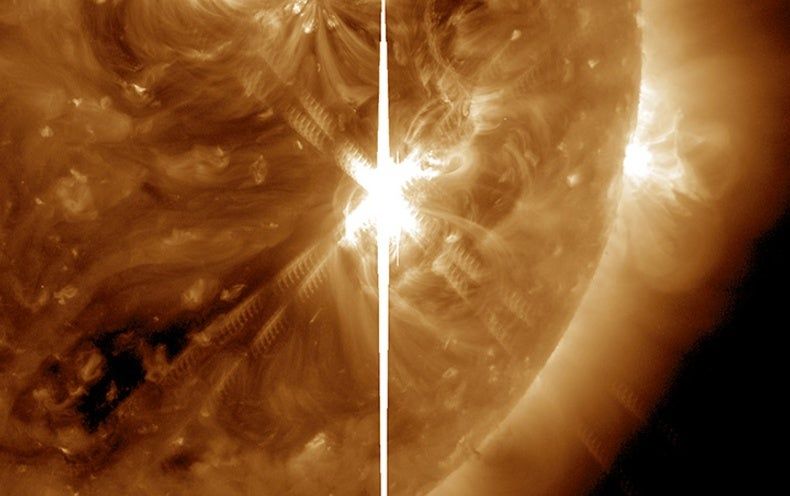Did you catch all that lightning last night? Don’t worry! There’s plenty of photos to see.



:oooo.
SOUTHERN UNITED STATES — Over 20 tornadoes touched down in the southern United States Wednesday, April 22 and more are expected Thursday, April 23. At one point, there were four distinct supercells on radar producing a tornado in Oklahoma.
Many of these storms lasted for hours and the threat for severe weather on Thursday, April 23 is aimed at the southeast.

Volcano activity update.
Although detailed statistics are not kept on daily activity, generally there are around 20 volcanoes actively erupting at any particular time.
Overall there are 45 volcanoes with ongoing eruptions as of the Stop Dates indicated, and as reported through the last data update (17 April 2020) and shown in the diagram below.
Just a reminder that yesterday was the 30th anniversary of the Redoubt volcanic eruption on April 21, 1990. Here a picture:


👽Stromboli has just erupted again for the second time this month. There has been 8000 earthquakes since January 2020 in Iceland, coinciding with a volcano network that has not been awake for 800 years.
There has been 250 small Earthquakes in Idaho, and the most recent relatively strong quake worldwide was registered in Honduras, over 6,3 magnitude, yesterday.
Fyodor, R.
A new lava flow started to descend on the side of Mount Stromboli on the eponymously named Italian island on Wednesday, amid an ongoing volcanic eruption.
Mount Stromboli recently erupted on April 1, as well as twice in two months between July and August 2019.

This is possibly part of the reasons there flocks of giant locusts ravaging Africa. Rainy periods of time like the March Rain may serve to catalyse their reproduction and they appear right when its time to harvest crops June and July, when farmers are just starting to harvest.
(Kenya, Somalia, and southern Ethiopia have the right conditions with the possibility of migrations to Uganda and South Sudan.)
Every few years, natural swings in the ocean can lead to such a warming, drastically altering weather on land—and setting the stage for flooding rains in East Africa. But at the same time, a second ocean shift was brewing. An unusually cold pool of water threatened to park itself south of Madagascar, leading to equally extreme, but opposite, weather farther south on the continent: drought.
Researchers have harnessed climate patterns to forecast famines months in advance.

Scientists have studied this ebb and flow for centuries, but only began understanding its effects on our planet at the dawn of the space age in the mid-20th century. Now it is clear that around solar maximum the sun is more likely to bombard Earth with charged particles that damage satellites and power grids. The solar cycle also plays a minor role in climate, as variations in irradiance can cause slight changes in average sea-surface temperatures and precipitation patterns. Thus, a better understanding of the cycle’s physical drivers is important for sustainable living on Earth.
Yet scientists still lack a model that perfectly predicts the cycle’s key details, such as the exact duration and strength of each phase. “I think the solar cycle is so stable and clear that there is something fundamental that we are missing,” says Ofer Cohen, a solar physicist at the University of Massachusetts Lowell. One obstacle to figuring it out, he says, is that crucial details of the apparent mechanisms behind the cycle—such as the sun’s magnetic field—are largely hidden from our view. But that might be about to change.
Tim Linden, an astronomer at The Ohio State University, and his colleagues recently mapped how the sun’s high-energy glow dances across its face over time. They found a potential link between these high-energy emissions, the sun’s fluctuating magnetic field and the timing of the solar cycle. This, many experts argue, could open a new window into the inner workings of our nearest, most familiar star.

See mushrooms are not of this earth o.o
Japanese researchers are closing in on understanding why electrical storms have a positive influence on the growth of some fungi. In a series of experiments, Koichi Takaki at Iwate University and colleagues showed that artificial lightning strikes do not have to directly strike shiitake mushroom cultivation beds to promote growth. Now they are developing technology to use electric stimulation in the production of the mushrooms, which are popular in many east Asian cuisines.
Bizarre as it may seem, atmospheric electricity has long been known to boost the growth of living things, including plants, insects and rats. In 1775, the priest and physicist Giovanni Battista Beccaria of the University of Turin reported, “it appears manifest that nature makes extensive use of atmospheric electricity for promoting vegetation”.
David Graves at the University of California at Berkeley, an expert on plasmas in food and agriculture who was not involved in this mushroom study, said “Historically, most people who looked at it [atmospheric electricity] systematically found some effect, but it can sometimes be hard to reproduce, so it’s still not by any means fully accepted in the community and there’s little understanding of the mechanism.” However, at recent plasma conferences, Graves was favourably impressed by the results presented by Takaki.